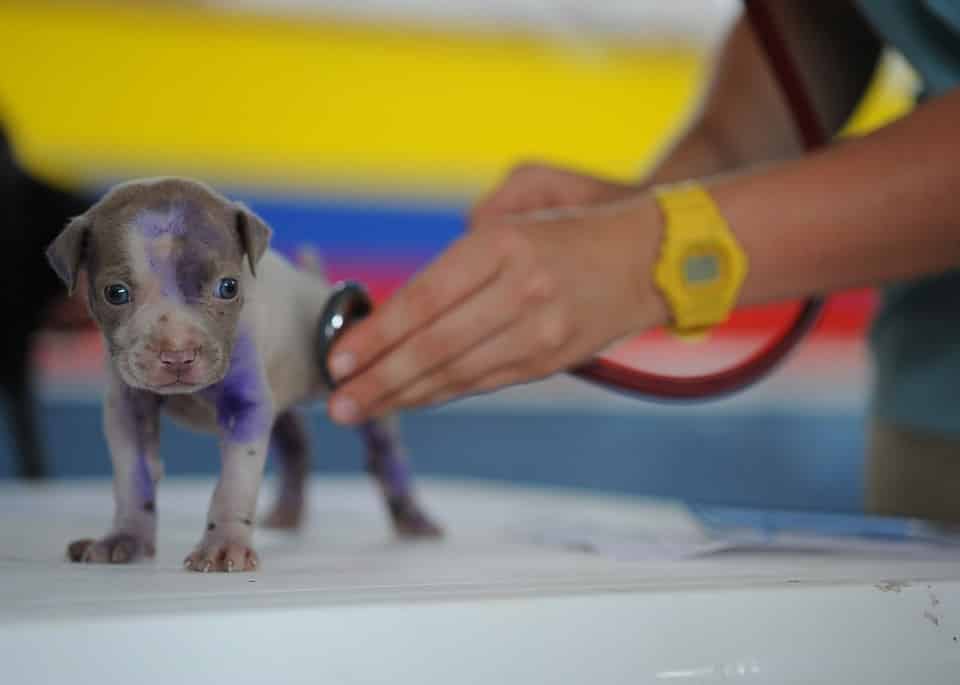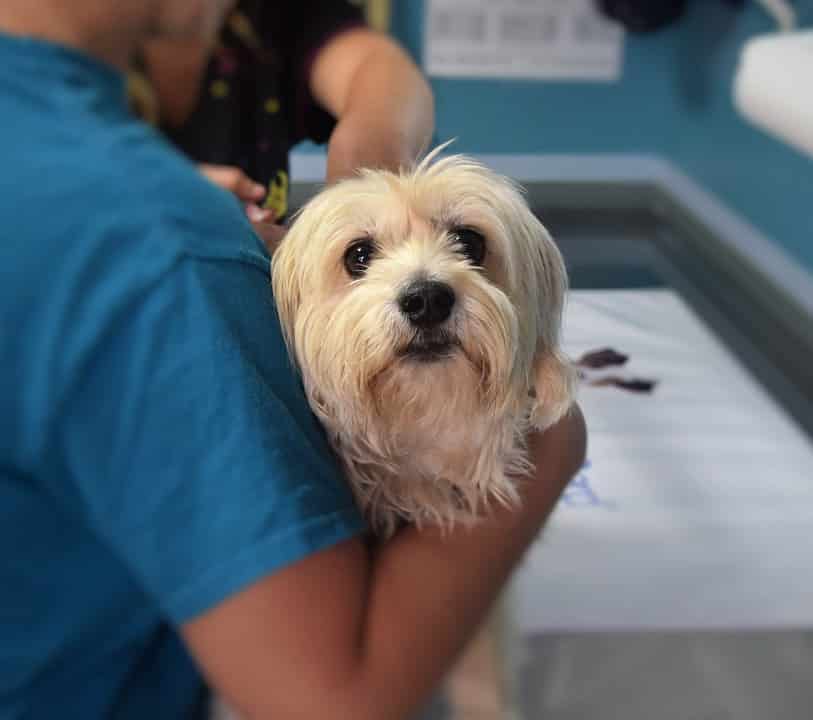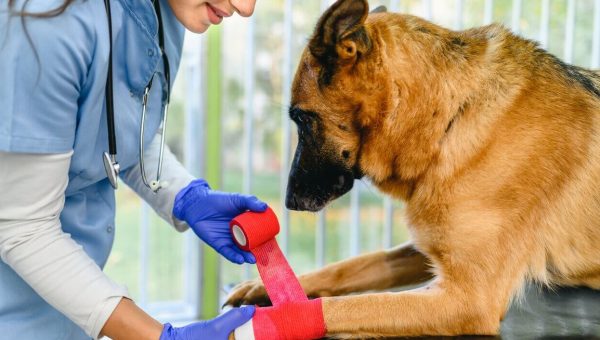When it comes to health issues, there are plenty of overlaps between dogs and humans; both dogs and humans can struggle with anxiety, seizure disorders, diabetes, and cancer (to name a few).
But what about Down syndrome? This genetic disorder is fairly common in humans (in the US, about 1 in every 700 babies is born with the disorder each year), but what about pets? Is there Down syndrome in dogs—and, if so, how do you know if your dog has it?
What is Down syndrome?
Before we jump into whether dogs can have Down syndrome and the potential symptoms of Down syndrome in dogs, let’s quickly cover what, exactly, Down syndrome is.
According to the Mayo Clinic, down syndrome is “a genetic disorder caused when abnormal cell division results in an extra full or partial copy of chromosome 21. This extra genetic material causes the developmental changes and physical features of Down syndrome.”
Down syndrome is categorized by distinct physical features (including a flattened face and upwards, slanting eyes) and may present with mild to severe intellectual disabilities and developmental delays. People with Down syndrome may also struggle with medical issues, like hearing loss, heart defects, or eye disease.
Is there Down syndrome in dogs?
Down syndrome in humans is easy to recognize and diagnose. But what about dogs? Is there Down syndrome in dogs?
And the answer is—not exactly.
There are some distinct genetic differences between humans and dogs—in particular, that humans have 23 sets of chromosomes while dogs have 39. Because Down syndrome is categorized by having 47 chromosomes (23 sets plus the extra copy of chromosome 21), it can’t be diagnosed in dogs—who, by default, have 78 chromosomes.
That being said, dogs can experience genetic abnormalities—and those abnormalities may manifest in symptoms and physical characteristics that resemble Down syndrome in humans.
Symptoms of Down syndrome-like conditions in dogs
If your dog is exhibiting what appear to be symptoms of Down syndrome, it’s important to get them to the vet.
Schedule an appointment with your vet if your dog is experiencing any of the following symptoms:
-
- Abnormal facial features and/or an abnormally broad head
- Growth delays
- Eye problems
- Hearing problems
- Skin problems
- Short limbs
- Mental and/or developmental delays
- Poor muscle tone
While there’s no “official” Down syndrome diagnosis for dogs, symptoms that resemble Down syndrome in humans could point to other health issues, such as those below.
Canine health issues that might mimic Down syndrome
Pixabay/jaminriversideIf your dog is struggling with cognitive or growth delays, there could be a number of underlying health issues causing them. While a genetic abnormality is possible, your dog may also have a congenital heart or thyroid issue, pituitary dwarfism, or a growth hormone deficiency—all of which could cause symptoms similar to Down syndrome.
Again, the best thing you can do for your dog if they’re exhibiting symptoms similar to Down syndrome is to get them to the vet for a proper diagnosis.
Taking care of your special needs dog
If your vet diagnosis your dog with special needs, there are steps you can take to give them the highest level of care and keep them safe, happy, and healthy.
- Schedule regular visits with your vet. Special needs dogs often need more frequent check-ups to make sure they’re healthy. Make sure to see your vet regularly and follow through with any necessary tests, treatments, or check-ups.
- Safeguard your environment. If your dog has any intellectual or developmental delays, it’s important to make your environment as safe as possible. Make sure the dog’s space is easy to move around in and free from any potentially dangerous obstacles. Put gates near stairs to prevent your dog from falling and injuring themselves.
- Feed them a proper diet. It’s important for all dogs to get proper nutrition—but it’s especially important for a special needs dog. Feeding your dog a well-balanced diet will give their body the nutrients it needs to function at its highest level.
It’s ok if your dog has special needs
If you have a dog with special needs, it’s ok! While you’ll definitely want to stay on top of their health issues, there’s no reason that a dog with special needs won’t go on to live a long, happy, and ultimately healthy life. There’s a reason they’re called “special”—so embrace your dog’s specialness and give them the care they need to feel their best.










